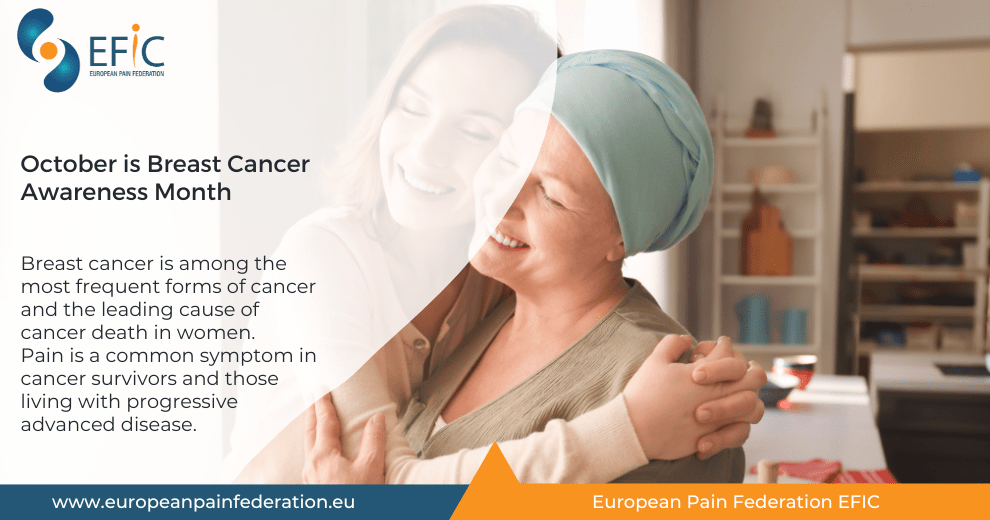Breast cancer is among the most frequent forms of cancer and the leading cause of cancer death in women, concerning every country of the world and any woman after puberty, with increasing rates in later life.
As the World Health Organisation (WHO) reports, in 2022, 2.3 million women were diagnosed with breast cancer, and 670,000 deaths were registered globally. In countries with higher Human Development Index (HDI), 1 in 12 women is diagnosed with breast cancer in their lifetime, with 1 woman of 71 dyeing of it. In contrast, in countries with lower HDI, while only 1 in 27 women is diagnosed with breast cancer in their lifetime, 1 in 48 women dies from it.
In Europe, this translates to 374,800 estimated new cases for 2022, corresponding to almost 30% of all diagnosed cancers and being the leading cause of cancer mortality with 95,800 estimated deaths that account for 16.7% of all cancer deaths in EU women.
Although rare, breast cancer concerns males as well, with the European Commission reporting 4,400 estimated new cases, accounting for 0.3% of all newly diagnosed cancers, and 1,200 deaths, accounting for 0.4% of all cancer deaths in men.
Pain in Cancer
Pain is a common symptom in cancer survivors and those living with progressive advanced disease, affecting up to 40% of cancer survivors and at least 66% of patients with advanced progressive disease. Evidence from meta‐analyses suggests that poor assessment and inadequate support for patient self‐management still have a huge impact on patients’ experience. This is the main reason behind the European Pain Federation EFIC’s long-lasting involvement in advocacy projects on this matter, bringing the different needs of current and past patients to policymakers’ attention.
Through the Societal Impact of Pain SIP project, EFIC takes part in actions of advocacy regarding the management of cancer-related pain and the improvement of policymaking. In 2017, EFIC put together a multidisciplinary Task Force of European experts to prepare standards for the appropriate management of cancer-related pain, culminating in the 2018 EFIC Standards for the management of cancer‐related pain across Europe – A position paper from the EFIC Task Force on Cancer Pain. In addition to the momentum from the scientific literature, the focus on cancer has also increased in the political arena, with European Commission President Ursula von der Leyen’s Political Guidelines for the Next European Commission 2019-2024 specifically mentioning the need for a European cancer plan. The European Commission’s work on cancer sits within the Directorate General for Health (DG SANTE), and on the 3rd of February 2021, Europe’s Beating Cancer Plan (EBCP) was launched, which reflects a political commitment to mobilise the European Union’s collective power to drive change to the benefit of its citizens.
Read these two articles in the European Journal of Pain, EFIC’s scientific journal on pain research and management, about pain in breast cancer survivors and its specific characteristics in the postoperative process:
-
Haenen V, Dams L, Meeus M, Devoogdt N, Morlion B, De Groote A, De Groef A. Continuum of somatosensory profiles in breast cancer survivors with and without pain, compared to healthy controls and patients with fibromyalgia. European Journal of Pain. 2024 Aug; 28(7): 1226-1241. https://onlinelibrary.wiley.com/doi/abs/10.1002/ejp.2257
-
Wang S, Shi J, Dai Y, Zhang J, Liu Q, Yang P, Zhu N. The effect of different nerve block strategies on the quality of post‐operative recovery in breast cancer patients: A randomized controlled study. European Journal of Pain. 2024 Jan; 28(1):166-73. https://onlinelibrary.wiley.com/doi/10.1002/ejp.2178
Europe’s Beating Cancer Plan includes the smartCARE project, in which EFIC are a partner, to develop a Smart Card (mobile app) to help cancer survivors in Europe with self-management. The Smart Card will be available all over Europe, taking the form of a mobile application allowing cross-border usage for cancer survivors and caregivers. In November 2023, the smartCARE project launched its user-needs survey, with responses reaching over 1,100 by the end of March 2024, representing more than 39 countries, various age groups, cancer types, and life stories.
EFIC has played a vital role in the INTERACT-EUROPE initiative, a collaborative project led by the European Cancer Organization (ECO) and supported by EU funding from the EU4Health program 2021-2027 as part of Europe’s Beating Cancer Plan. This project united 33 partners from 17 different countries with the goal of creating a comprehensive European inter-specialty cancer training program that encompasses all major oncology disciplines and professions, cancer centres, and patient groups. The final ISCT curriculum, endorsed by INTERACT-EUROPE, now encompasses the evaluation and management of pain throughout the entire cancer journey, including vulnerable populations such as the frail elderly, adults with learning disabilities, and those at risk of substance abuse disorders. This curriculum has been published in the European Journal of Surgical Oncology.
Screening Guidelines
The European Commission Initiative on Breast Cancer (ECIBC) has developed person-centred evidence-based guidelines and a quality assurance scheme for breast cancer care services. Its uptake across Europe ensures that all women have equal access to breast cancer services with an essential level of quality and patient safety.
ECIBC recommends mammography screening every two years for women between the ages of 50-69 and suggests mammography screening starting at age 45 and continuing to age 74.
